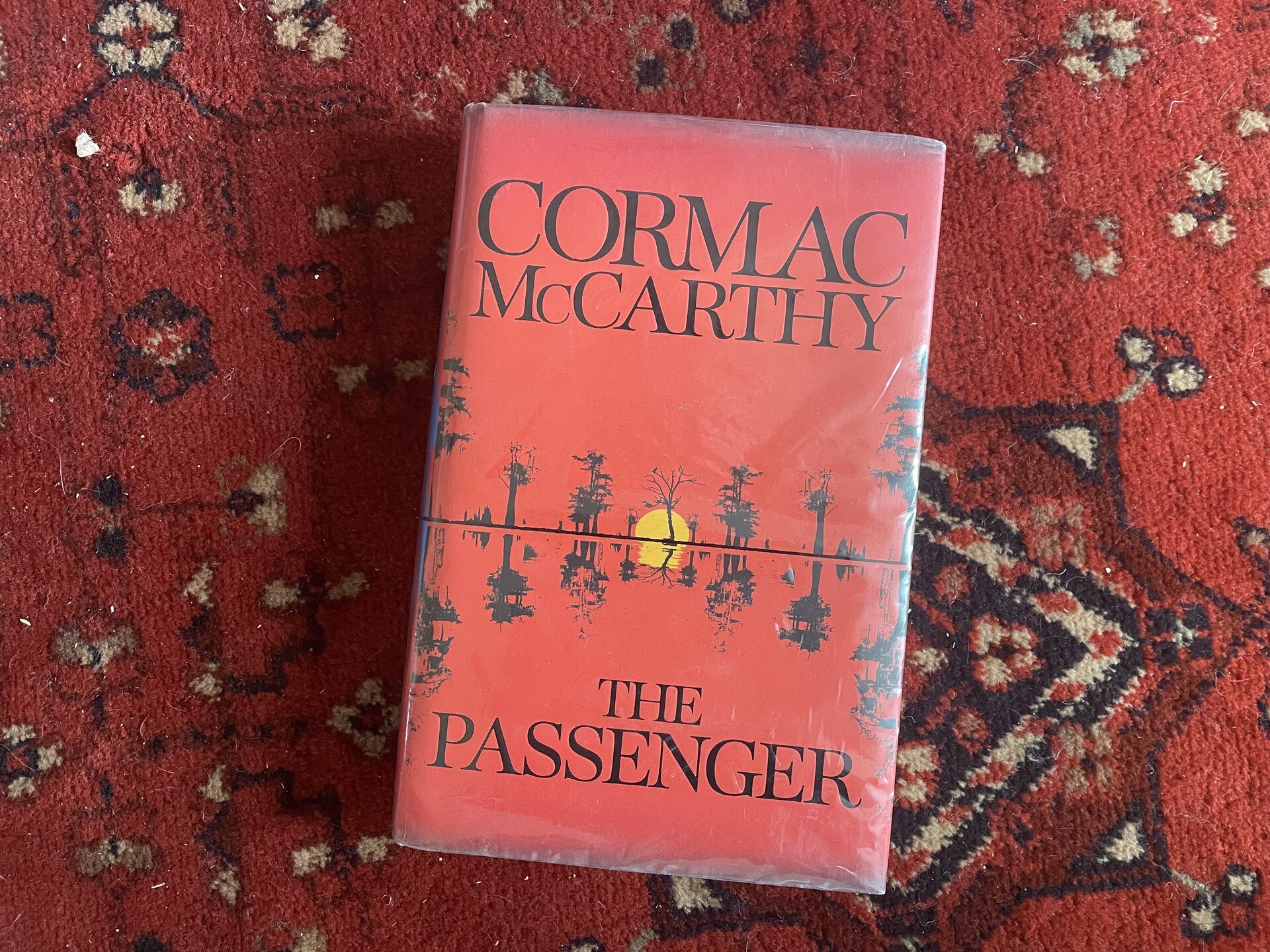The Passenger
by Cormac McCarthy
Published 2022 383 pages
Like millions of other bearded thirty-somethings, I read Blood Meridian in my twenties and was captivated by the depravity of the world it depicted; then I read No Country for Old Men and swooned at the noir-inspired western vibe, and I read Child of God and, well, that's pretty depraved too. The Passenger is kind of like Child of God, but kind of not.
Bobby Western, a salvage diver in the 1980s southeast United States, leads a solitary existence in the wake of his sister's death. A passenger is missing from the flight log of a private jet that's gone down off the coast of Louisiana and that Western is hired to salvage. Suspecting that something is criminally amiss with the jet, Western investigates noncommittally and is rewarded with a visit from a pair of shadowy G-man-like figures, is gradually pushed further and further to the periphery of society as his home is raided, his bank accounts are closed, his passport is revoked, and his belongings repossessed. There's an extremely compelling section in the middle where he's assigned to work on an oil rig, and when he arrives there's no one there, and over the course of a few days he slowly starts to question his surroundings and whether there actually is someone else there and it's all tense and gripping and taut. This is interesting! Some reviewers are upset that McCarthy never reveals the mystery of the downed plane, but I don't care. It's just a plot device to show us what it's like, as in Child of God, when someone drifts off to the limns of humanity.
However! This story only comprises like a quarter of the book. The rest of the book is filled with sort of meandering conversations that Bobby has with a cast of Bobby's colourful acquaintances and the vignettish hallucinations of Bobby's schizophrenic genius sister Alicia.
The former are... alright? It feels like McCarthy was just trying to flex his conversational muscles, and he does a passable job. The story grinds to a halt during these passages, however; while we get a bit of exposition, most of the conversations just sort of navel-gaze complexly about the nature of humanity and solitude and nature, that sort of McCarthyesque stuff.
The latter, however—Alicia's schizoid episodes with the carnival crew of hallucinations—feel plucked from a different book, about something else entirely. And by accounts I think they were!—thematically plucked from The Passenger's companion book, Stella Maris, which gives an account of Alicia's time in hospice care and presented entirely through dialogue. If these (mercifully shorter) chapters are any measure of this other book, I think I'll leave it on the shelf for the time being.
No denying McCarthy's prose, though: sharp and idiosyncratic as ever, rich and muscular and the bright supersaturated colour of cocktail sauce:
And all the while a clangor like the labor of a foundry and dark figures in silhouette about the alchemic fires, the ash and the smoke. The floor lay littered with the stillborn forms of their efforts and still they labored on, the raw half. Sentient mud quivering red in the autoclave. In that dusky penetralium they press about the crucible shoving and gibbering while the deep heresiarch dark in his folded cloak urges them on in their efforts. And then what thing unspeakable is this raised dripping up through crust and calyx from what hellish marinade. He woke sweating and switched on the bedlamp and swung his feet to the floor and sat with his face in his hands. Dont be afraid for me, she had written. When has death ever harmed anyone?
Next
A short drama at the Durham Fringe Festival about poverty in the forgotten corners of the United Kingdom hits home.
Previous
Joining a running club, attending Middlesbrough Front End, getting my bike tuned up, competing in a triathlon